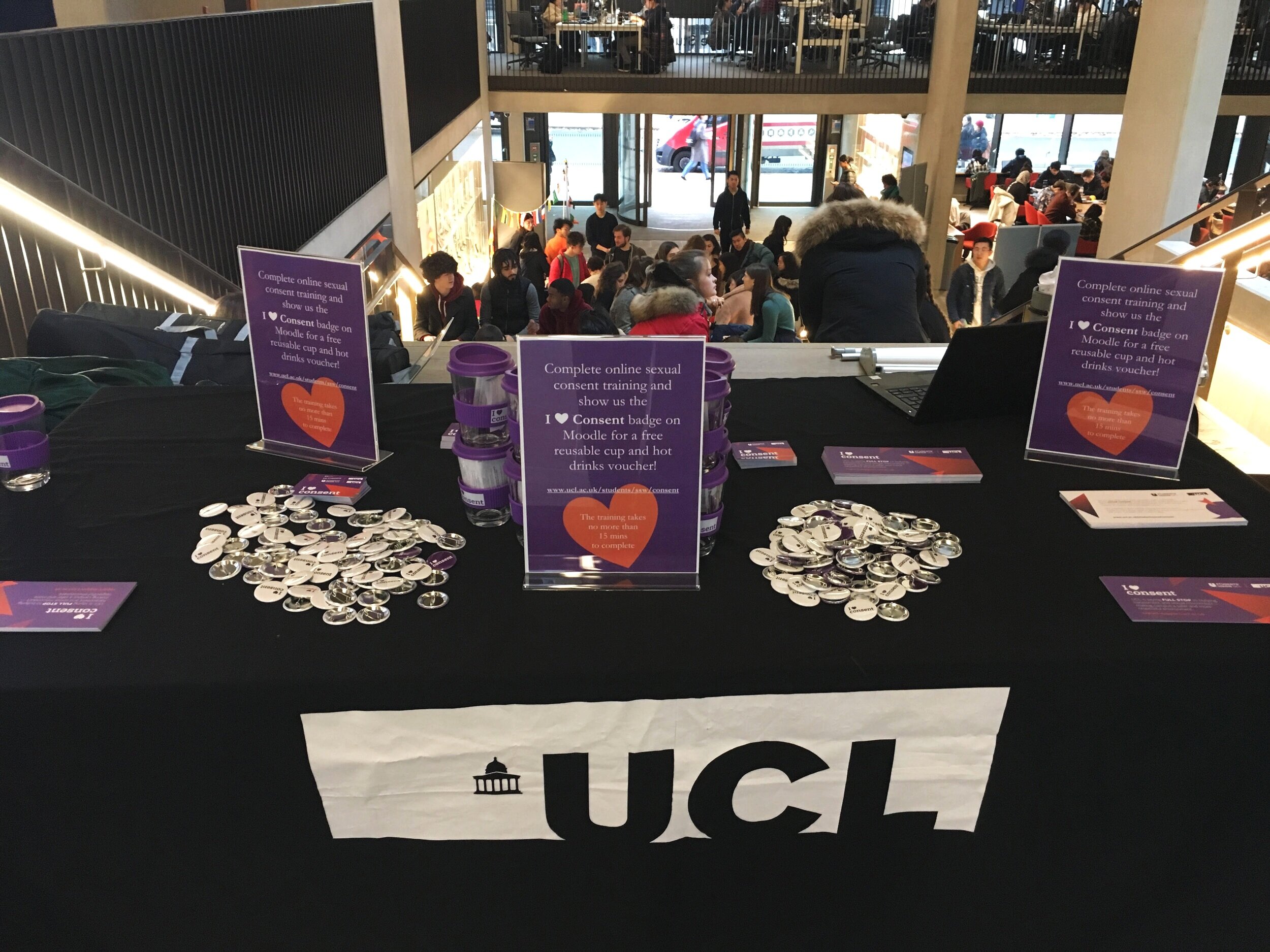I ❤ Consent: UCL campaign for sexual consent
Hannah Buttle reports on ‘I ❤ Consent’, UCL’s most recent campaign to raise awareness amongst students about sexual consent.
Fancy a free coffee? UCL are offering a free hot drink and a reusable mug to every student who completes an online sexual consent awareness course. To complete the course, log in here and take a picture as evidence to the stand in the Mezzanine of the Student Centre and claim your freebies. The stand is open from 10am-4pm on 29th November, the last day of the event. After this, students can pick up their cup and hot drinks voucher in the Advice Service in 25 Gordon Street.
The sexual consent training features both legal and definitions of consent, which participants are then asked to apply to hypothetical scenarios. Myths about sexual assault, such as the notion that victims should fight back, are dispelled. Further resources are also available for those affected by sexual violence, including specialist organisations for LGBT+ people and people with disabilities.
Richard, a third-year management student, was enthusiastic about the training: “It’s important on campus because you hear so many stories. You need to shed light on the issue and show that you care.”
Currently, the programme is not mandatory, although the Students’ Union hopes to make the training compulsory for students next year. In the meantime, UCL has asked the presidents of all student societies to encourage their members to take the course. “More than 600 students have already taken part. Our aim is for 5,000,” said Women’s Officer Nilisha Vashist.
Without mandatory training, the students who participate are likely to only be those interested in promoting healthy relationships, free coffee, or both. One student said, “I kind of knew everything already.” Vashist is aware of these challenges. Though the response from most students has been positive, more needs to be done to understand why some students are not engaging with the issue, she said.
Some suggested more bystander intervention training, which teaches how to safely intervene in instances where sexual violence may occur. Such training may be more effective than standard consent training. Students’ Union UCL have run active bystander workshops previously, most recently in September. Workshops will run again in January 2020. The course also includes a lot of audio, which will soon have audio description available for those with hearing impairments.
That said, UCL’s keenness to promote consent as a core value in the university community is encouraging. At a time when, according to The Tab, only two universities in the UK are offering compulsory consent courses, any step in the right direction is a welcome one.


